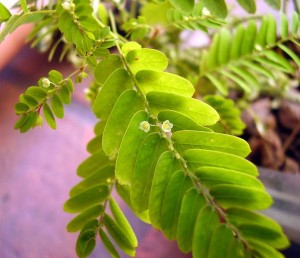Phyllanthus niruri Shows Promise as Treatment for Prostate Cancer
Categories: Product Information
 There are few illnesses that put fear into people quite like the threat of cancer. Having lost several loved ones to cancer, I can tell you that I’m not even comfortable writing about it. I wanted to share a study that I found a couple of weeks ago, that suggests Phyllanthus niruri, the active ingredient in Clear Kidneys, may be effective in slowing or stopping the growth of cancer cells common to prostate cancer and some other common cancers, such as melanoma, a/k/a skin cancer. **
There are few illnesses that put fear into people quite like the threat of cancer. Having lost several loved ones to cancer, I can tell you that I’m not even comfortable writing about it. I wanted to share a study that I found a couple of weeks ago, that suggests Phyllanthus niruri, the active ingredient in Clear Kidneys, may be effective in slowing or stopping the growth of cancer cells common to prostate cancer and some other common cancers, such as melanoma, a/k/a skin cancer. **
A little bit of history…
In the 1980’s and 1990’s, there was a lot of interest in the medicinal value of plants from the Amazon rainforest and other obscure parts of the world, from pharmaceutical companies, universities, and other researchers. They were searching for unique or novel chemical compounds from the plants that might be used to treat some of the world’s most devastating diseases and conditions, including HIV/AIDS, hepatitis B/C, malaria, and any type of cancer. Of course, much of this research was driven by the need to find something that was marketable. A number of the plants in the Phyllanthus genus were part of that group that generated a lot of interest, including our favorite, Phyllanthus niruri. For the most part, research found that many of the plants were therapeutically useful, but unfortunately not profitable. The pharmaceutical companies determined that it would be difficult and expensive to create any sort of drug from a plant that grows wildly, freely, and prolifically. For the record, Phyllanthus niruri is considered a nuisance weed in most parts of the country.
The Study
The study, published in 2010 and republished with additional analysis in 2013, evaluated the effectiveness of several plants in the Phyllanthus genus:
- Phyllanthus amarus
- Phyllanthus niruri
- Phyllanthus urinaria
- Phyllanthus watsonii
Scientists took two types of extracts of each of these four plants, one water and one methanol extract, for a total of eight different extracts. They used a similar method that we use to create the Phyllanthus niruri extract used in Clear Kidneys. They tested the effectiveness of each plant again a control group. This was all done in a lab, so there was no animal or human testing. Each of the plants used in the study have different types and amounts of naturally occurring chemical compounds, so the researchers wanted to also determine if any plant performed better than another. They found that each of the extracts were effective in causing cancer cell death and preventing cancer cell reproduction through destruction of the DNA to varying degrees. You can read the entire study here, but I warn you, it is very technical:
- Phyllanthus Suppresses Prostate Cancer Cell, PC-3, Proliferation and Induces Apoptosis through Multiple Signalling Pathways (MAPKs, PI3K/Akt, NFκB, and Hypoxia): http://www.ncbi.nlm.nih.gov/pmc/articles/PMC3652183/
Mark’s Bottom Line
I live in a state that has the third highest incidence rates for prostate cancer in the nation and I have a prostate, so this is an area of interest. I am encouraged by the study, because it brings out some of the beneficial attributes of this plant. The study used the Phyllanthus extracts directly on the cancer cells, so I’m sure they are thinking about therapies that would apply the extracts directly to the affected cells in actual prostate cancer patients. I take Clear Kidneys, a/k/a Phyllanthus niruri, every day, but not to prevent prostate cancer, just for kidney stone prevention. I don’t know whether or not it would be useful to prevent prostate cancer, but it does make me feel just a little bit better about the situation. Periodic screening is most important, regardless of how awkward or uncomfortable it may be.
~ + ~
The publishers of the study published it under the Creative Commons Attribution License, which means it is free for anyone to distribute. I am very happy to see this, as most studies like this can only purchased and can be quite expensive. Information yearns to be free…. The original 2010 study can be found here: http://www.ncbi.nlm.nih.gov/pmc/articles/PMC2935893/

No comments yet.